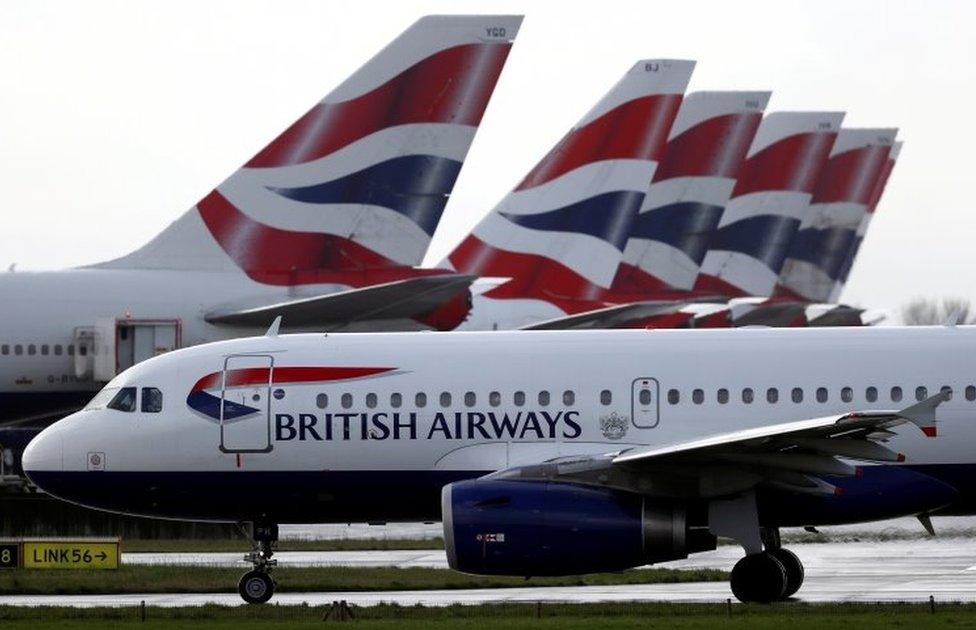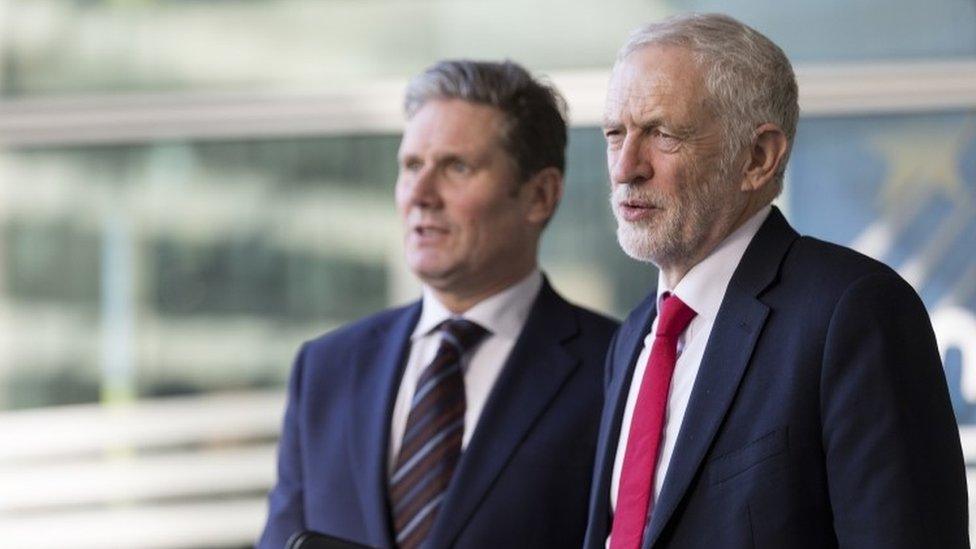Coronavirus: Starmer warns of up to three million job losses
- Published
Sir Keir Starmer says UK unemployment could rise to two or three million due to the coronavirus pandemic.
Labour leader Sir Keir Starmer has warned there could be up to three million job losses as a result of the coronavirus crisis.
He urged ministers to keep the furlough scheme going into next year for travel and hospitality workers to fight unemployment "on a scale we haven't seen for a generation".
He also called for a Budget in July.
The government says relaxing social distancing will make "an enormous difference" to businesses.
Office for National Statistics figures show the UK economy shrank by 20.4%, external in April - the largest monthly fall on record.
Almost nine million UK workers are having their wages paid by the government, while the number of people claiming unemployment benefit surged by 856,500 to 2.1 million in April.
Speaking to BBC political editor Laura Kuenssberg during a visit to Stevenage, Hertfordshire, Sir Keir said people had been "shielded" from the worst effects of the downturn so far, but added: "I really fear that unemployment we haven't seen on a scale in a generation could happen and we need to take steps to prevent that."
Asked about potential job losses, he said: "Looking at the figures, I fear two million-plus, possibly three million... I hope it doesn't happen."
A "proper" Budget should happen in July, Sir Keir said, to bring forward infrastructure projects.
He added that the furlough scheme must be "more flexible" and kept going for travel, service and hospitality firms which need "a bit more protection".

British Airways is among the firms which have announced mass redundancies
Companies should not face a "cliff edge" when furlough ends - as it is scheduled to do - in October, he added.
The Labour leader said there had to be a "limit" on payments and it was important for the government to balance its books, but he did not specify what limits he would put on spending were he to become prime minister.
Many companies hit by the downturn have announced job losses in recent weeks, including 12,000 at British Airways, 5,000 at Centrica and 4,500 at Easyjet.
Business Minister Nadhim Zahawi said: "We monitor the different groups and the different announcements from companies about consultations regarding redundancies".
Laura Kuenssberg's interview with Sir Keir happened before he sacked shadow education secretary Rebecca Long-Bailey on Thursday for retweeting an article he said contained an "anti-Semitic conspiracy theory".
Mrs Long-Bailey said she had not meant to endorse all aspects of the article, based on an interview with Labour-supporting actress Maxine Peake.
Sir Keir, a former lawyer and director of public prosecutions, won the Labour leadership in April, promising to take the party "into a new era with confidence and hope" following its poor showing in last year's general election.
He has faced Boris Johnson several times at Prime Minister's Questions, which in recent weeks has involved testy exchanges over the government's handling of the coronavirus crisis.

Sir Keir Starmer took over from Jeremy Corbyn in April
Sir Keir said: "The problem I've got is the prime minister doesn't engage in the question at all, and doesn't listen to what I've got to say, and has pre-prepared responses."
Asked if he thought Mr Johnson was a good or strong leader, he replied: "No, he isn't."
Sir Keir said it would "take time" for voters to get to know him, but said he believed people had "noticed the difference" in the Labour Party since he took over as leader from Jeremy Corbyn.
"I've only been in [the job] for less than three months," he said. "It's four years to get to the next general election."
As the lockdown eases, hairdressers and pubs will reopen from next month.
Sir Keir said he was looking forward to "a pint" and had a haircut booked "first thing" on 4 July.